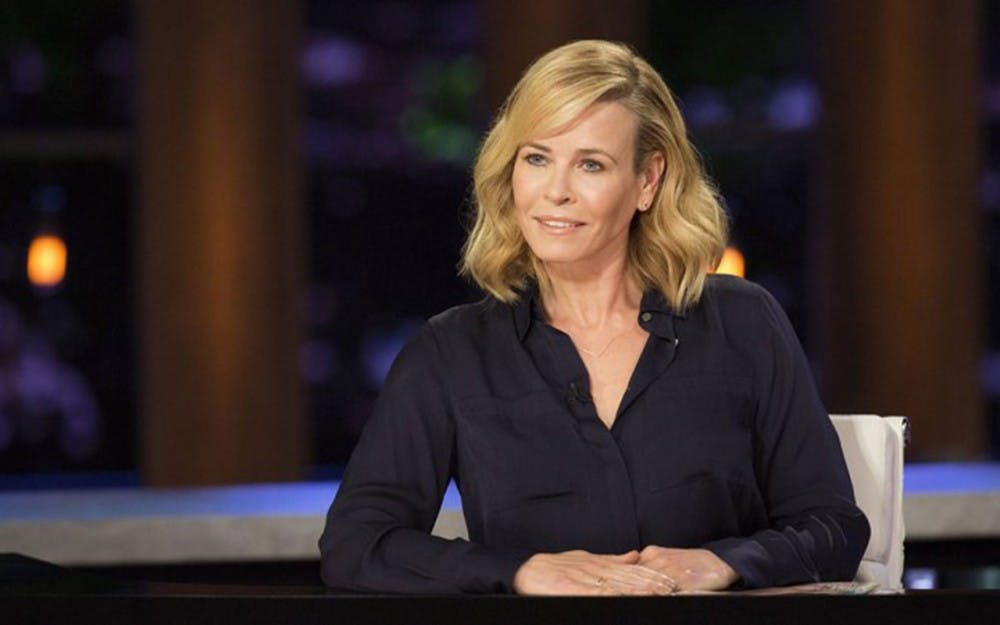Last week, comedian Chelsea Handler had a virtual press conference with college students around the country to answer questions about her Netflix talk show "Chelsea," which began its second season April 14, and other topics of interest. Here are some excerpts from the conversation.
Q: Your show "Chelsea" just started its second season on Netflix. What do you hope to accomplish in this new season?
A: We have an hour format, which I think is a good fit for me. We have a lot of satirical political stuff now, because I feel like it’s very important to be political at this time. If you have a voice, I feel like it’s really important to use it.
Q: What was your inspiration to dive into more serious and controversial topics with the show?
A: I’m growing up, and the things I care about I wasn’t able to talk about on my old show, so I wanted to have more of a spectrum of conversation. As a person, you’re not only interested in one thing — I don’t care about football, I don’t care about science or math, so I’m trying to incorporate that and be a fish out of water.
Q: You’ve spoken a lot about politics and how you feel a sense of responsibility to help people understand. What do you think the American public’s biggest misunderstandings are?
A: I think there’s a big misconception about politics in general. It’s like, “Oh, I don’t wanna be political, I don’t wanna get involved, I don’t wanna do that,” and that’s lame. It’s too serious to not get involved. You don’t have to become this politically active person but you have to be aware and use your right to vote.
Q: What do you want college students in particular to take away from your show?
A: That you don’t ever really have to grow up, that you can be an adult and still be immature. That you don’t have to get married, you don’t have to have kids, you don’t have to do any of those things unless it’s something you really want to.
Q: You’re big on gay rights and that means a lot to members of the LGBTQ community. How does it feel to know you are looked up to by so many people in the LGBTQ youth/overall community?
A: I love that. That makes me so happy. I feel like when you can help out a group that you’re not a part of, it says a lot more about your character than helping a group you are a part of. And I think right now especially, it’s important to stick up for Muslims, minorities, anybody whose rights are at risk, and you really have to stick your neck out for that.
Q: How do you suggest college women deal with misogyny and sexism, which has become part of day-to-day life for some?
A: You do not tolerate it. Don’t ever be quiet about it — scream and yell until people hear you. When people scream and yell, and stand up and stick together, it does make a difference. This is a country where we have a history of changing the way things are for the good — and don’t give up on that.
Q: As college students and college journalists, we’re on the verge of a lot of rejection and failures. How do you handle these not-so-funny moments?
A: You have to be strong and you have to be bold. I’m a girl that got rejected a ton and it doesn’t matter until someone says yes. Rejection doesn’t feel great but it’s like, move on. There are gonna be many more rejections so don’t focus on one or get down about that. That’s so silly, that’s what life is about.



